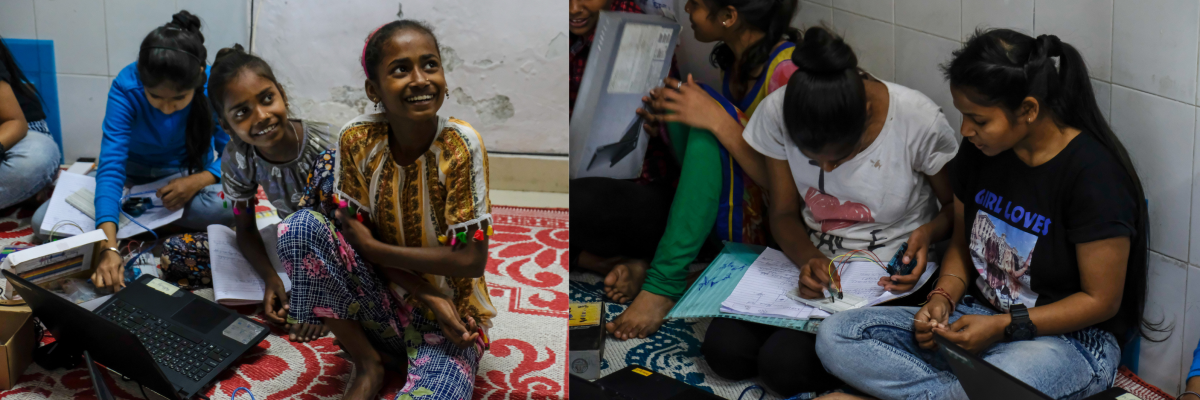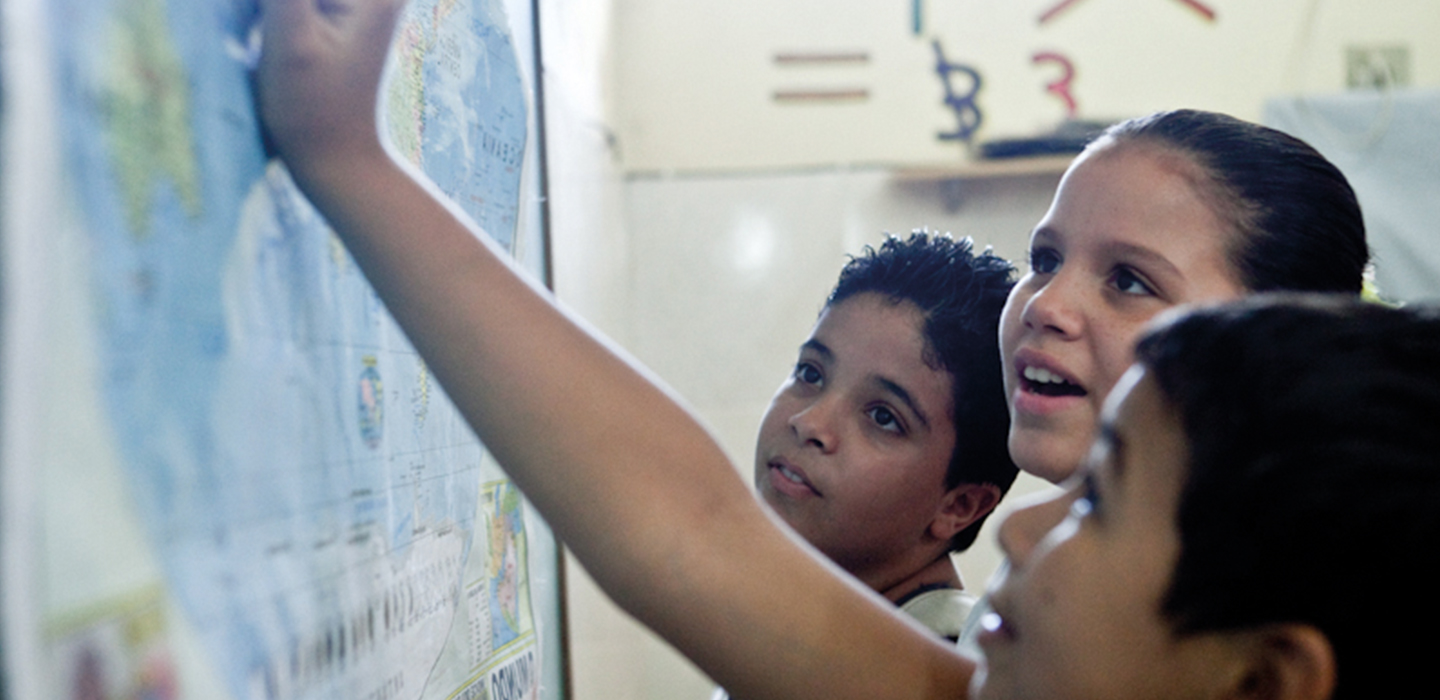Areas of Focus: Inclusive Learning
Inclusive learning recognises the vast spectrum of circumstances in which people learn—many not in formal school settings—as well as the diversity of learning needs of young people. It embraces the idea that all young people deserve a quality learning experience that respects diversity, enables participation, removes barriers, and anticipates a variety of learning needs and preferences. Inclusive learning can take place in both formal and non-formal learning environments, face to face, and online.
We support local solutions that aim to address the need for safe, inclusive (on and offline) environments that nurture learning for all, regardless of gender, sexual orientation, migration, ethnicity, caste, religion, or disability status.
Inclusive learning and quality education promote 21st century skills and competencies—transferrable skills and knowledge that equip young people for their rapidly evolving societies today and the expected velocity of change for their futures. Relevance is more important than traditional academic achievement.
We support local partners that provide:
- academic support, inside or outside of classrooms
- teacher training
- 21st century skills, digital literacy, and training in relevant international languages
EMpower supports programmes that aim to:
- Prevent school drop-out or find alternative continued learning pathways
- Close the gender gap in school options, achievement, and completion
- Develop cognitive and non-cognitive skills such as creativity, collaboration, and communication

Feminist Approach to Technology
A recent UN report shows that girls and women constitute only 14% of the total scientific community in India. Negative perceptions and stereotypes of STEM as a ‘boys only’ path or for the geeky and unattractive girls, also inhibit girls’ likelihood of developing an interest in these fields. In addition, girls do not receive adequate training, support in schools, role models to aspire to in technical fields, or on-the-job experiences that would make them more likely to pursue STEM fields.
Feminist Approach to Technology (FAT) was founded in 2008 by Gayatri Buragohain to work towards the empowerment of girls by increasing their access to, and interest and participation in, technology. Their programmes focus on breaking societal stereotypes and attitudes, encouraging and enabling women to feel comfortable in working with technology. They mainly work with adolescent girls from socially and economically disadvantaged families who come from urban settlements. FAT’s programmes include STEM training, basic computer training, skills-building courses, and practical assignments.
Our Grantee Partners Working on
Inclusive Learning
East and Southeast Asia
China and Hong Kong
India
Chintan Environmental Research and Action Group
CYDA - Centre for Youth Development and Activities
Feminist Approach to Technology Society (FAT)
Foundation for Education and Development-Doosra Dashak
Jan Sahas Social Development Society
PUKAR (Partners for Urban Knowledge, Action and Research)
Indonesia
Pakistan
Philippines
Thailand
Vietnam
Latin America
Colombia
Mexico
India
Connect with EMpower
Stay up-to-date on the latest EMpower news, highlights from our grantee partners, upcoming events, and more.
Make a Difference with EMpower
Our Board Directors and the Leadership Council underwrite all of our Management, General and Fundraising expenses, so 100% of your donation goes directly to empowering marginalised young people.

